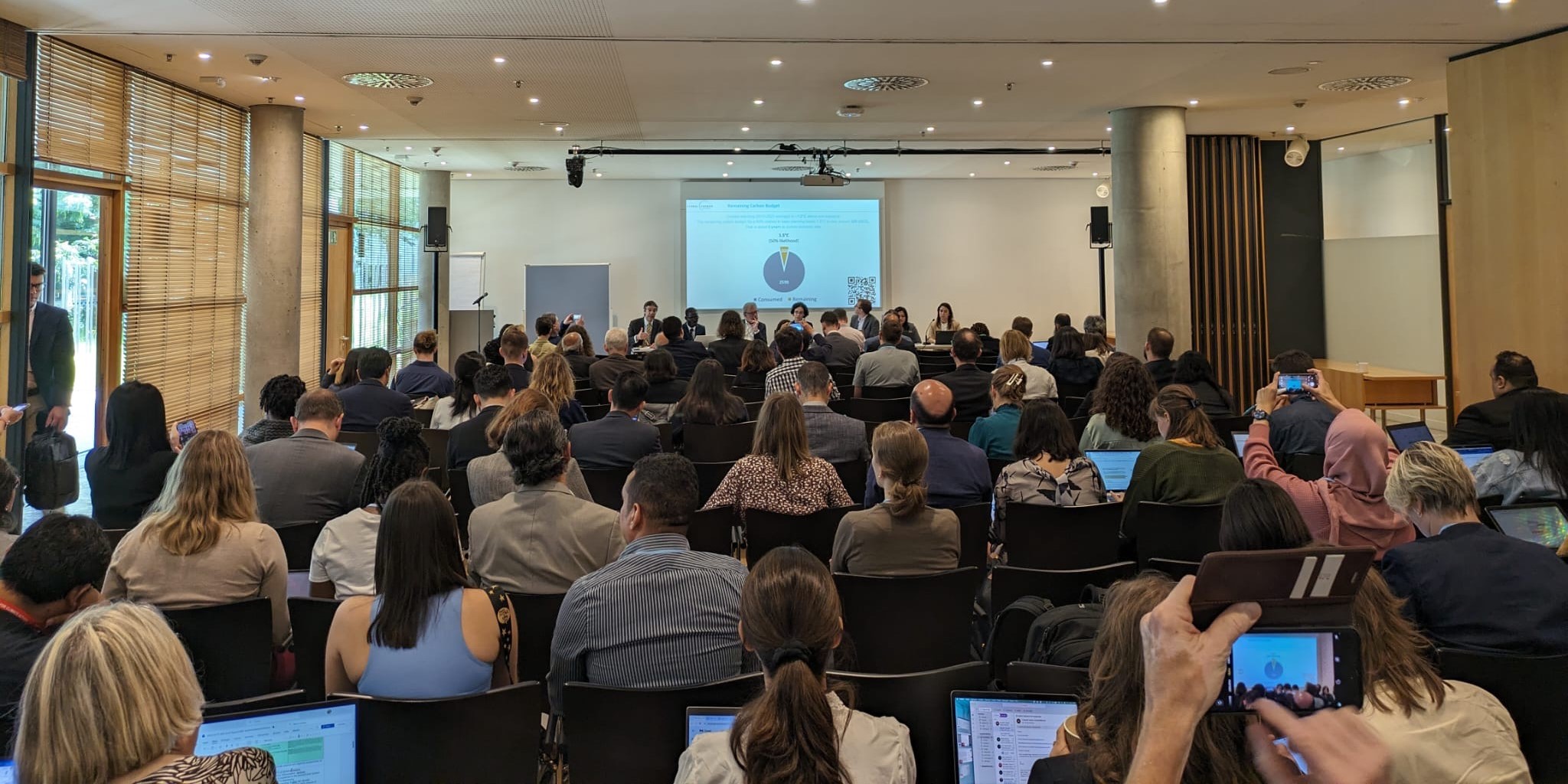By Morgan Sparey
Attending the 60th session of the Subsidiary Bodies (SB 60) under the UNFCCC in Bonn was a pivotal experience. SB 60 plays a crucial role in shaping the agenda and discussions for the upcoming Conference of the Parties (COP), making it an essential part of the international climate negotiation process. As a PhD student in climate data science from the University of Exeter, this opportunity, supported by my university, offered me a firsthand look at the intersection of scientific research and international climate policy. While the event is crucial for shaping global climate action, I left with mixed feelings.
Walking into the World Conference Center Bonn, I was struck by the energy in the air. However, as the sessions progressed, it became clear that the sense of urgency needed to tackle climate change was often missing. Discussions frequently got bogged down in bureaucratic details and clever wordplay that seemed more about shifting targets than addressing the science.
My academic focus has been on the quantitative aspects of climate science. At SB 60, I saw firsthand how crucial it is to translate scientific findings into policies. Yet, the gap between scientific recommendations and policy decisions was frustratingly apparent. Watching the Subsidiary Body for Scientific and Technological Advice (SBSTA) in action, I often felt that policymakers were more interested in adjusting targets than meeting them.
Networking with experts from various fields was a mixed experience. While I had enlightening conversations with seasoned negotiators, researchers, and NGO representatives, I also noticed that many seemed more interested in talking than listening. The atmosphere often felt more like a networking event than a collaborative effort to tackle climate change. This reinforced my desire to bridge the gap between academia and policy, ensuring that robust scientific data guides climate strategies. However, it was clear that many shared my frustration with the slow pace of progress.
A significant positive was engaging with YOUNGO, the official children and youth constituency of the UNFCCC. Their presence was a refreshing contrast, bringing energy and a call for genuine action. YOUNGO’s passionate advocacy for ambitious climate action highlighted the importance of empowering the next generation in this critical fight.
The discussions at SB 60 covered important issues, from the Global Stocktake to climate finance. Despite the potential of emerging technologies and data-driven approaches to support these efforts, the event often felt like it lacked the urgency and commitment necessary for real progress. The optimistic declarations frequently clashed with the slow, bureaucratic reality of international negotiations.
I am grateful to the University of Exeter for this opportunity. Despite my frustrations, the experience enriched my understanding of the global climate policy landscape. Moving forward, I am committed to leveraging my position in climate data science to support evidence-based policymaking and drive meaningful climate action.
Attending SB 60 was both enlightening and sobering. It reinforced the importance of integrating scientific research with policymaking but also the need for a more urgent and genuine approach to tackling climate change. As I return to my studies, I do so with a renewed sense of purpose and determination to contribute to the global effort in combating climate change, while remaining critical and engaged in the process.

